The clock on the former Co-operative Society building on the corner of Marlborough Square was once a major local landmark. It marked the end of the Monkey Walk, where young people promenaded through the town. Coalville Working Men’s Co-operative Society began to provide their much-needed goods and services in 1882. An alternative source of entertainment was the Olympia, also in Marlborough Square. Originally a skating rink, it became a picture house and was replaced by the Regal cinema.
A photograph and text about pit ponies in 1950.
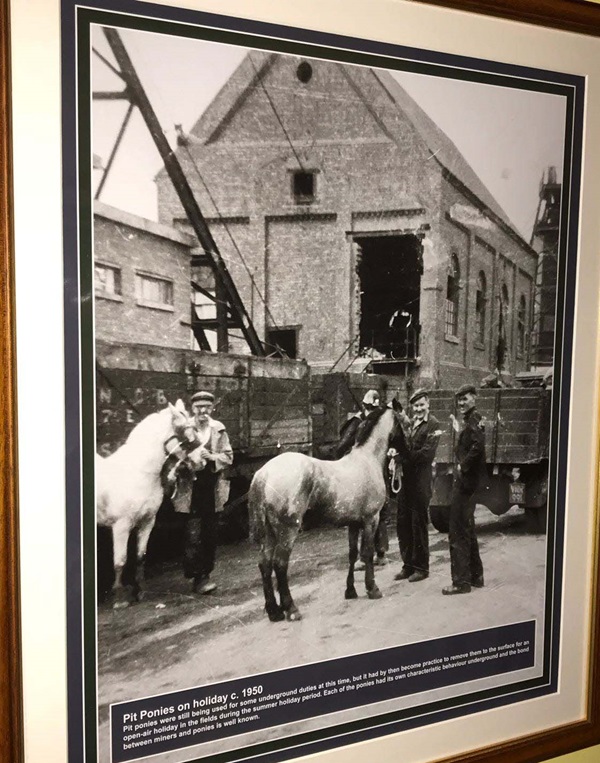
The text reads: Pit ponies were still being used for some underground duties at this time, but it had by then became practice to remove them to the surface of an open-air holiday in the fields during the summer holiday period. Each of the ponies had its own characteristic behaviour underground and the bond between miners and ponies is well known.
Photographs and text about the Memorial Clock Tower.
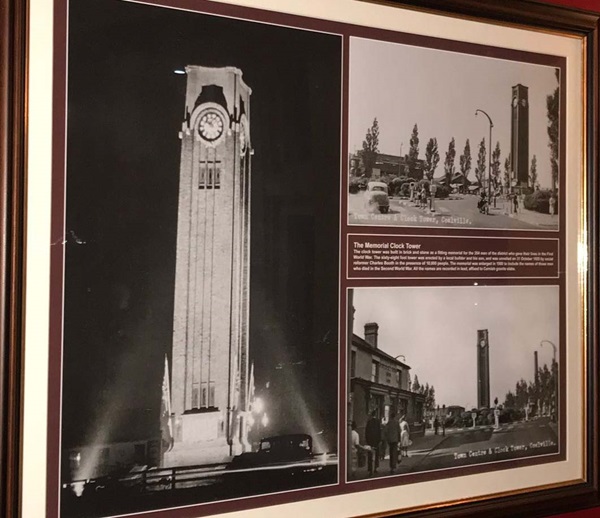
The text reads: The clock tower was built in brick and stone as a fitting memorial for the 354 men of the district who gave their lives in the First World War. The sixty eight foot tower was erected by a local builder and his son, and was unveiled on 31 October 1925 by social reform Charles Booth in the presence of 10,000 people. The memorial was enlarged in 1950 to include the names of these men who died in the Second Wold War. All the names are recorded in lead, affixed to Cornish granite slabs.
A photograph and text about Coalville Electric Theatre.
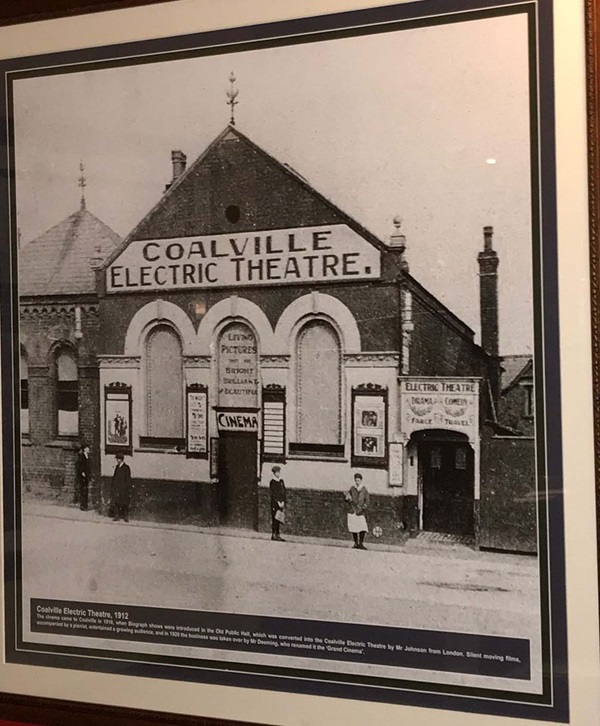
The text reads: The cinema came to Coalville in 1910, when Biograph shows were introduced in the Old Public Hall, which was converted into the Coalville Electric Theatre by Mr Johnson from London. Silent moving films, accompanied by a pantomime, entertained a growling audience, and in 1920 the business was taken over by Mr Doeming, who renamed it the Grand Cinema.
A photograph, illustrations and text about Whitwick Colliery Disaster, 1898.
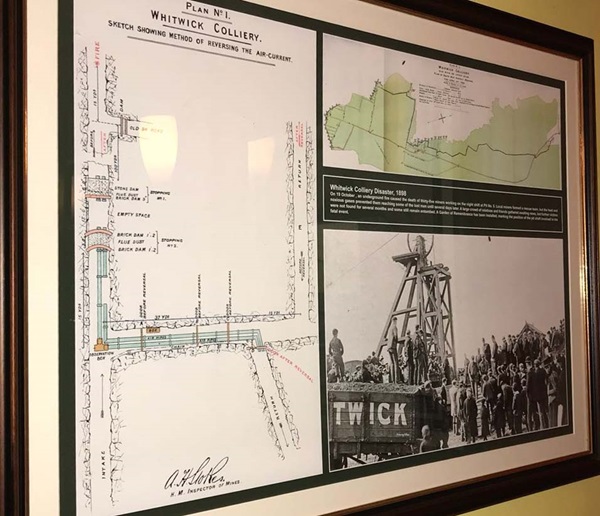
The text reads: On 19 October, an underground fire caused the death of thirty five miners working on the night shift at pit no.5. Local miners formed a rescue team, but the heat and serious gasses prevented them reaching some of the men until several days later. A large crowd of relatives and friends gathered awaiting news, but further victims were not found for several months and some still remain entombed. A Garden of Remembrance has been installed, marking the position of the pit shaft involved in the fatal event.
External photograph of the building – main entrance.
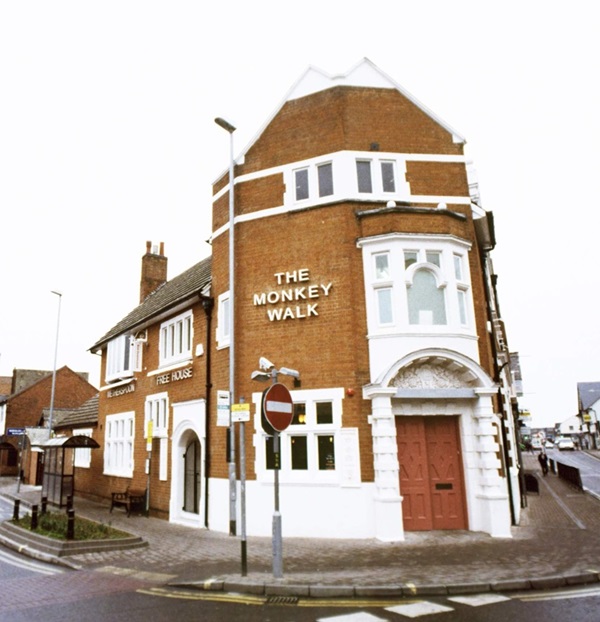
If you have information on the history of this pub, then we’d like you to share it with us. Please e-mail all information to: pubhistories@jdwetherspoon.co.uk